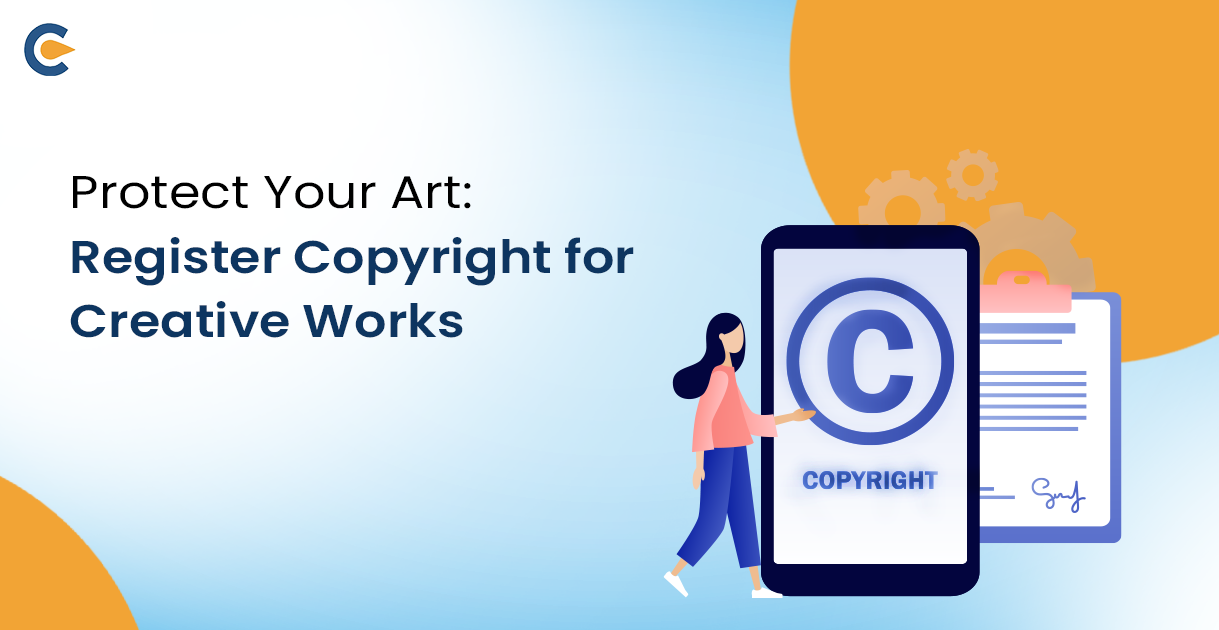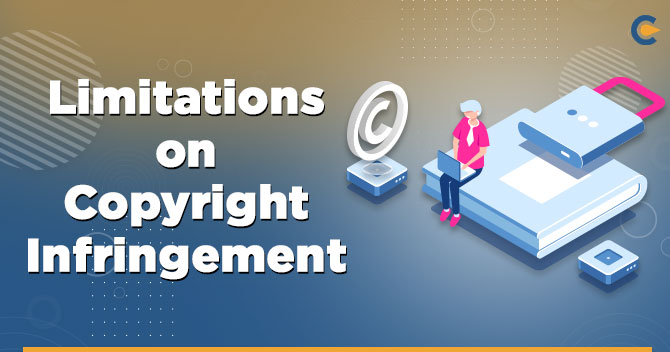Copyright protects the creative work and the creations made by the individuals so that they are not copied by another person and used for their advantage. It gives the creators the authority over their work so that it is not shared, used, or reproduced by any other person. The registration of a copyright provides you with a sense of legal security against its infringement. Intellectual property is an intangible asset to its owner. Having ownership and rights protects the property from being further used and reproduced in any form. Copyright registration is a must for the owner to get the copyright legally protected from being duplicated. The owners of the property are able to make copies of the work and use it for their own purposes.
Legal Rights of the Owner
As soon as an individual registers a Copyright for creative work, it gets legal status and is protected by the law from being misused; its ownership is also protected unless and until it is transferred. The rights of these copyright owners are –
- After following the process of copyright registration for creative work and getting legal status, the individual gets the authority over their title to prevent it from being used by another individual to their advantage.
- The owner of the intellectual property has the right to store it in any form and can help reproduce it in a tangible form to their advantage, like selling that artistic work to make money.
- The owner has the exclusive right to decide whether they want to publish their work on a particular platform or not.
- Publication to the general public by the owner is also acceptable, but it can’t be copied from a different artist. Copyright protection provides this protection to the owner even after the publication. No other person can use that artwork to their advantage as it will fall under the infringement.
- When there is any risk of your reputation arising from the copyrighted work, then the owner can take appropriate actions to protect it from being misused.
- The copyright owner can sell or transfer the ownership to any other person, giving them the right to use or reproduce it for their beneficial purpose. There are many copyright owners who sell their rights in order to gain financial benefits.
Process of copyright registration for creative work
In order to register a copyright for creative work, one needs to follow a process of copyright registration for creative work and get recognised under the eyes of the law. The process is as follows –
Initially, to register a copyright for creative work, a person needs to log in through the official website to register for copyright protection. User ID and password need to be created by the individual, and he/ she has to click on ‘New User Registration’. After that, the process is as follows –
Application Submission
The application has to be sent through Form XIV in a prescribed manner, including all the necessary documents attached to the application, and by paying the fee of the registration to register copyright for creative work while complying with the process of copyright registration for creative work. Then, the user would receive a Diary number and need to send a physical copy of that artistic work to the nearest copyright office.
For Offline registration, the relevant documents, along with the statement of particulars in Form XIV, to the nearest copyright office. The prescribed fee for the process needs to be submitted through demand drafts in that office only. With the submissions of the aforementioned documents, a physical copy of the work also needs to be submitted in order to register copyright for creative work. The diary number is received by the applicant upon providing the documents.
It should be noted that each distinctive work requires a separate application. Every application must be signed by both the applicant and an Advocate with a Vakalatnama or Power of Attorney (POA).
After the diary number is received by the registrar, the process of registering copyright for creative work is initiated. There is a necessary 30-day period so that if there is any objection posed by anyone, it can be catered to. If the 30 day period has lapsed, then a copy of the copyright registration form and the acknowledgement slip has to be sent via post to some places like –
- Ministry of Commerce and Industry
- Copyright division
- Department for Promotion of Industry and Internal Trade
- Boudhik Sampada Bhawan, Plot No 32, Sector 14, Dwarka, New Delhi – 110078
- copyright@nic.in
- Phone No- 011-28032496
Objection (if any)
In case of the objection of the third party in the process of copyright registration for creative work, a notification of hearing is conveyed, where both the parties have the chance to introduce their contentions and a choice is arrived at in view of the submissions made by both parties.
Grant of Copyright
The assigned officer looks into all the documents, and if he/ she finds no issues with the submitted documents, then they are transferred to the next stage in order to register copyright for creative work. In case there are issues in the application, the officer sends a letter of discrepancy to the applicant. To register a copyright for creative work, the applicant must respond to this letter, and after that, a meeting is conducted where the issues are to be sorted out, and upon successful solution, the registration moves to the next part.
When any objections in regard to the registration of Copyright for Creative Work are settled, the copyright official issues a registration certificate. The span of the whole copyright Enrollment process relies upon the copyright office’s choice. In any case, on the off chance that no disparities are found, the certificate is ordinarily given within four to five months.
Conclusion
To register Copyright for Creative Work is very important to save the rights of the individual with the new creation. One can save themselves from any cheating or misuse of the creative art that he/ she has made. However, the government has eased and made the process of registering copyright for creative work considerably easier.
To register Copyright for Creative Work, one could take the help of Corpbiz for its easy process. We have individuals who are experts in this and can make the process easier for you.
Frequently Asked Questions
The documents required to register copyright for creative work are –
1. Copies of work
2. Vakalatnama or Power of attorney
3. When the artistic work is not created by the applicant, then authorisation from the owner of the artistic work is needed.
4. Details of the work
5. Information of the author and if the applicant is not the author, then the information of the applicant is required.
6. No objection certificate from the Trademark office in case the work has to be used on a selling product.
The validity of the copyright is for the author’s whole lifetime and 60 additional years after the death of the author. It provides protection to the legal heirs of the author to claim the benefit of the work which was done by the author during his lifetime.
Yes, there are a few necessary conditions that the author has to follow in order to register copyright for creative work. They are –
a) If the work is artistic, then it has to be uploaded in jpg/pdf format; sound recordings should be uploaded in mp3 form; for music, literary, and dramatic work, it should be uploaded in a pdf form, and the file size should not exceed 10 MB.
b) If the work is made up of software, then at least the first ten pages and the last ten pages of the code should be uploaded in the pdf format, and in case the software doesn’t exceed 20 pages, then the whole software needs to be mentioned in the attached pdf.
There are few people who can register a copyright for creative work, and these are –
• The author of the artistic work which is claimed in the process of copyright registration for creative work
• Any person who has the exclusive rights for sale, reproduction, or distribution can register a copyright for creative work.
• The copyright claimant might be the author of the artistic work or a person/organisation who has obtained ownership rights from the author via a documented contract or a will.
• Any authorised agent who has been authorised to act for the purpose can also register a copyright for creative work on behalf of the applicant.
Yes, the Copyright Act of 1957 governs the provisions regarding copyright in the country.
A person can use the symbol of copyright (©) only when the registration is completed. It gives the legal protection to the copyright owner for the copyrighted work.
Generally, it takes around 3-4 months for copyright authority to grant the registration certificate if all the documents provided are correct and there has been no objection raised against the copyright claim by any third party.
To check the application of copyright application, one needs to go to the company registrar’s website and select the ‘status of application’ option. Then, a previously received acknowledgement number/ diary number has to be provided, and then we can see the status of the application.
While registering any artistic work under copyright law is not mandatory, it is strongly advised for numerous compelling reasons. Copyright protection grants the creator a defined set of basic rights to their work and ensures that their creative efforts cannot be copied for a certain length of time. Thus, this sense of security and legal protection boosts motivation and pushes producers to pursue their artistic goals and create more stuff.
The primary job of the copyright recorder is to act as a storehouse for copyright guarantees and related reports. It goes about as an authority record-keeping office where data about intellectual property regulations and the enrolment cycle is made accessible to others.
Also, it deals with the activities of the copyright office, saving freely available reports and giving important data to people in general.
No, any idea or concept cannot be protected by the copyright as they are not in writing. When the idea is expressed in any kind of drawing, writing, or even code, then it can be copyrighted after going through the process of copyright registration for creative work.
In case of any copyright infringement, the burden of proof lies on the plaintiff. The plaintiff has to provide proof of his/ her work already being protected by copyright law and registered as an intellectual property.
The minimum punishment levied if a person is accused of copyright infringement is six months of imprisonment and a minimum of Rs 50,000 fine. In case of a second or more such infringements, the penalty exceeds one year imprisonment and a fine of not less than one lakh rupees.
Under section 63 of the Copyright Act, 1957 any infringement of copyright or its abetment leads to a criminal offence.
Read our Article: Securing Creative Work Via Copyright Protection In India











